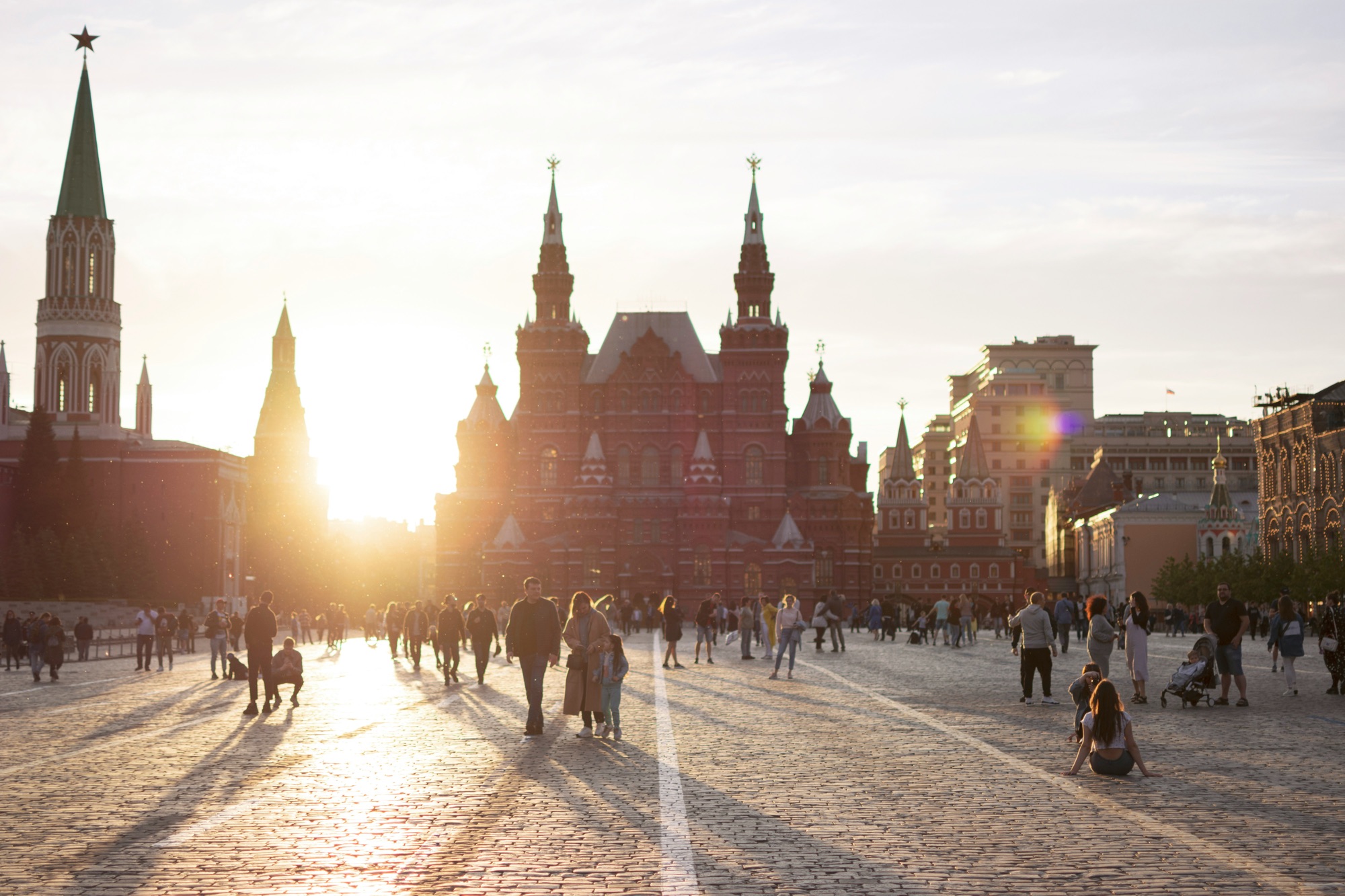Russia, despite its vast natural resources and large landmass, remains economically poorer than many Western European countries. This disparity can be attributed to a complex interplay of historical, political, economic, and social factors. Understanding why Russia lags behind Western Europe in terms of wealth requires examining these multifaceted reasons, which include the legacy of the Soviet era, economic structure and management, governance issues, geopolitical challenges, and social factors. The roots of the economic differences stretch back to the historical contrasts between Russia and Western Europe. While Western Europe gradually developed capitalist economies with varying degrees of industrialization and economic liberalization, Russia followed a different path due to its unique historical context.
Historical Context
Soviet Legacy
The legacy of the Soviet Union has had a lasting impact on Russia’s economy. The command economy of the USSR focused on heavy industry and military production at the expense of consumer goods and services. This created an economic structure that was not well-suited to compete in a globalized market economy. When the Soviet Union collapsed in 1991, Russia faced a tumultuous transition to a market economy, resulting in significant economic disruption and hardship.
Example: The Soviet system’s focus on heavy industry left a legacy of outdated machinery and infrastructure, making it difficult for new industries to thrive. Many factories were inefficient and unable to compete with those in Western Europe, where technological innovation had been ongoing.
Transition to Market Economy
The rapid privatization and market reforms of the 1990s, known as “shock therapy,” were intended to quickly transform Russia into a capitalist economy. However, these reforms led to widespread economic dislocation, hyperinflation, and the rise of oligarchs who acquired vast wealth through questionable means. The resulting economic inequality and instability hindered long-term economic development.
Personal Insight: The shock therapy approach, while ambitious, often lacked adequate safety nets for the population. Many people found their savings wiped out almost overnight due to hyperinflation, leading to a deep distrust in financial institutions that still affects economic behavior today.
Economic Structure and Management
Resource Dependency
Russia’s economy is heavily dependent on natural resources, particularly oil and gas. While these resources generate significant revenue, they also make the economy vulnerable to fluctuations in global commodity prices. This dependence on a narrow range of exports limits economic diversification and innovation, constraining long-term growth prospects.
Practical Tip: Diversifying the economy is crucial. Russia could look to countries like Norway, which, despite its oil wealth, has built a robust sovereign wealth fund and invested in various sectors to buffer against oil price volatility.
Lack of Diversification
Unlike many Western European economies, which have diverse industrial and service sectors, Russia’s economy is less diversified. The focus on natural resources has led to underinvestment in other sectors such as manufacturing, technology, and services. This lack of diversification hampers economic resilience and adaptability.
Case Study: Germany, for example, has successfully diversified its economy with strong automotive, engineering, and technology sectors, making it less susceptible to global market shifts in any single industry.
Investment Climate
Russia has struggled to create an attractive investment climate for both domestic and foreign investors. Issues such as bureaucratic red tape, corruption, weak property rights, and an unpredictable regulatory environment deter investment. Without sufficient investment, economic growth and development are stymied.
Actionable Advice: Streamlining bureaucratic processes and strengthening the protection of property rights could significantly improve the investment climate. Legal reforms that ensure transparency and reduce corruption are critical steps toward attracting foreign capital.
Governance Issues
Corruption
Corruption is a significant problem in Russia and permeates various levels of government and business. This undermines economic efficiency, increases the cost of doing business, and discourages both domestic and foreign investment. Corruption also leads to the misallocation of resources and reduces public trust in institutions.
Statistics: Transparency International’s Corruption Perceptions Index consistently ranks Russia low, indicating pervasive corruption issues that need addressing to foster economic growth.
Rule of Law
The rule of law in Russia is weak, with concerns about judicial independence and the enforcement of legal contracts. This creates an uncertain business environment, where companies and individuals cannot rely on fair and consistent legal protections. The lack of a reliable legal system further hinders economic development and investment.
Example: Businesses often hesitate to invest in regions where legal outcomes are unpredictable, as seen in the case of the Yukos oil company, which faced legal challenges that deterred future investments.
Political Stability
While Russia has experienced relative political stability under Vladimir Putin’s leadership, this stability comes at the cost of democratic freedoms and political pluralism. The centralization of power and suppression of political dissent create an environment where innovation and entrepreneurial activities are stifled. Additionally, the lack of political accountability can lead to poor economic decision-making and governance.
Common Mistake: Focusing solely on political stability without encouraging political pluralism can lead to stagnation, as it discourages new ideas and innovation essential for economic growth.
Geopolitical Challenges
Sanctions
Western sanctions imposed on Russia following its annexation of Crimea in 2014 and involvement in the conflict in Eastern Ukraine have had a significant impact on the Russian economy. These sanctions have restricted access to international financial markets, limited technology transfers, and reduced foreign investment. The economic isolation resulting from sanctions has further constrained Russia’s growth prospects.
Practical Insight: To mitigate the impact of sanctions, Russia could focus on strengthening ties with non-Western economies and developing self-sufficiency in critical sectors such as agriculture and technology.
Global Market Access
Russia’s geopolitical actions have also affected its access to global markets. Tensions with Western countries have led to a decline in trade relationships and limited Russia’s ability to integrate into the global economy. This isolation reduces opportunities for economic growth and development.
Example: The European Union, a major trading partner, has imposed trade barriers that have forced Russia to seek alternative markets, often at unfavorable terms.
Social Factors
Demographic Trends
Russia faces challenging demographic trends, including an aging population and low birth rates. An aging population increases the burden on social services and reduces the labor force available for economic activities. Additionally, health issues, such as high mortality rates and a lower life expectancy compared to Western Europe, further strain the workforce.
Statistics: The World Bank reports that Russia’s population is expected to decline significantly by 2050, exacerbating labor shortages and increasing social service costs.
Education and Innovation
While Russia has a well-educated population and a strong tradition in fields such as mathematics and science, the country struggles to translate this into economic innovation and growth. Issues such as brain drain, where highly skilled individuals emigrate to seek better opportunities abroad, and insufficient investment in research and development hinder the country’s ability to compete in high-tech industries.
Actionable Advice: Investing in tech incubators and fostering a start-up culture could help retain talent and translate educational strengths into economic innovation.
Income Inequality
Income inequality in Russia is significant, with a small percentage of the population controlling a large share of the wealth. This inequality limits overall economic growth and reduces consumer spending power. Additionally, it exacerbates social tensions and reduces the effectiveness of social and economic policies aimed at improving living standards.
Example: Addressing income inequality through progressive taxation and social investment can help stimulate economic growth by increasing the purchasing power of the middle class.
Emerging Opportunities
Technological Adoption
Despite challenges, Russia has the potential to leverage technological advancements to drive economic growth. With its well-educated workforce, there is an opportunity to adopt new technologies and improve productivity across various sectors.
Practical Tip: Encouraging partnerships between universities and industry can facilitate technology transfer and innovation, similar to models in Silicon Valley.
Renewable Energy
As global energy markets shift towards renewable sources, Russia has the potential to diversify its energy sector. Investing in renewable energy infrastructure could reduce dependency on fossil fuels and open new markets.
Example: Countries like Denmark have successfully transitioned significant portions of their energy production to renewables, boosting economic resilience and environmental sustainability.
Conclusion
Addressing the economic disparity between Russia and Western Europe requires a multifaceted approach that tackles historical legacies, economic structures, governance, geopolitical challenges, and social factors. By focusing on diversification, improving the investment climate, tackling corruption, and leveraging its educated workforce, Russia can unlock its economic potential. While the journey is complex, the path to economic prosperity is achievable with sustained and comprehensive reforms.




